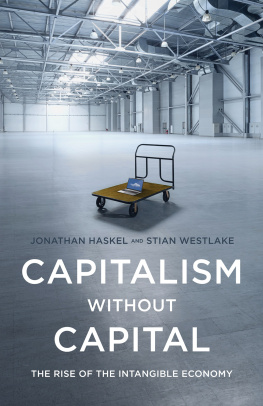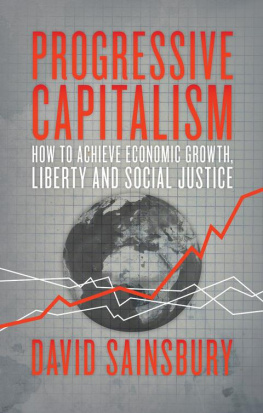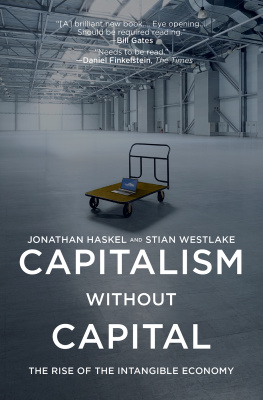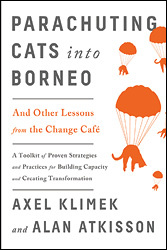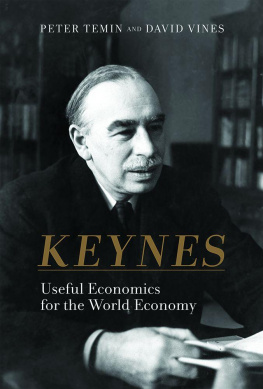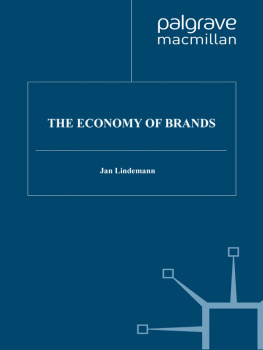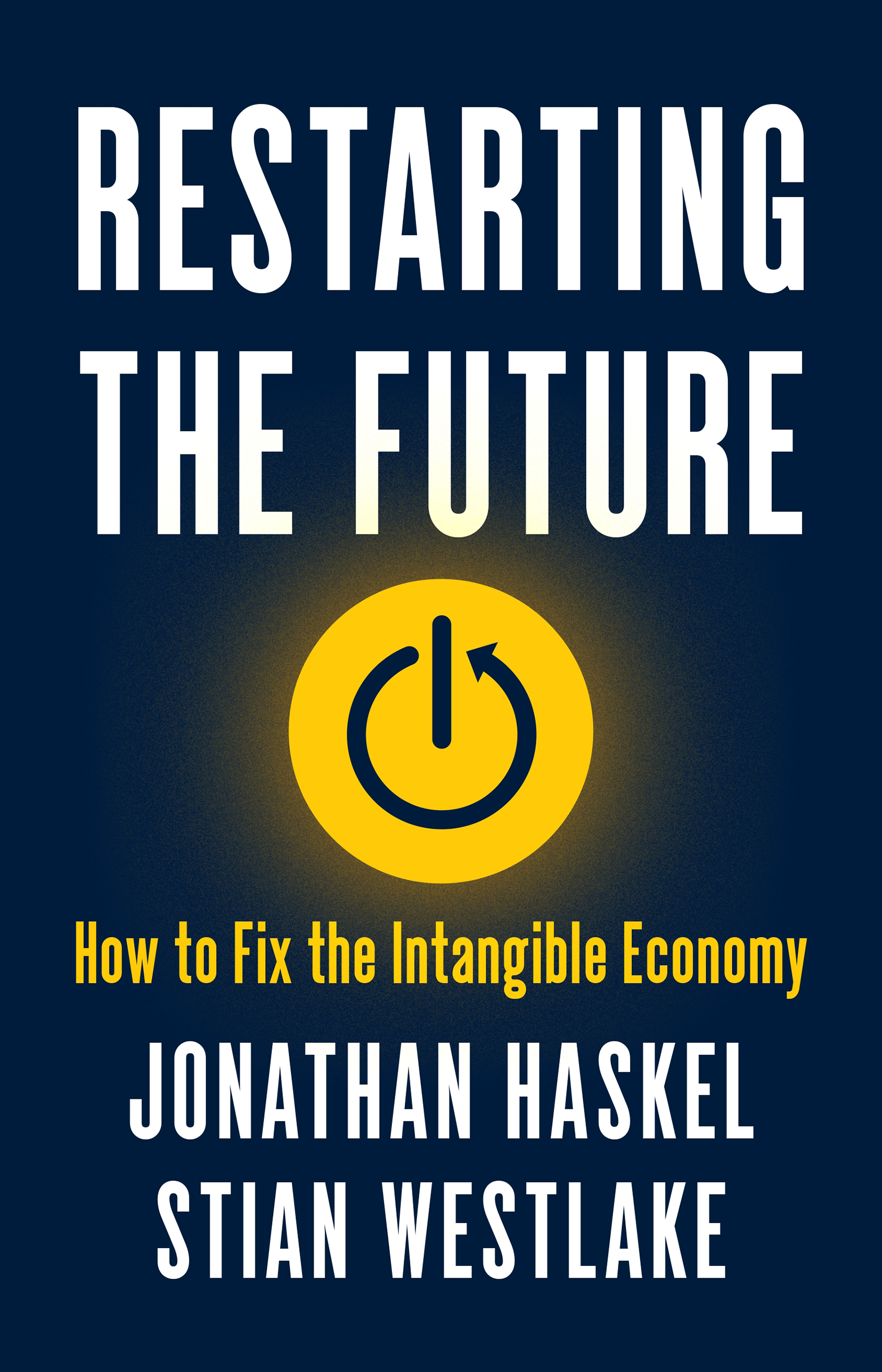RESTARTING THE FUTURE
RESTARTING THE FUTURE
HOW TO FIX THE INTANGIBLE ECONOMY
Jonathan Haskel and Stian Westlake
PRINCETON UNIVERSITY PRESS
PRINCETON AND OXFORD
Copyright 2022 by Princeton University Press
Princeton University Press is committed to the protection of copyright and the intellectual property our authors entrust to us. Copyright promotes the progress and integrity of knowledge. Thank you for supporting free speech and the global exchange of ideas by purchasing an authorized edition of this book. If you wish to reproduce or distribute any part of it in any form, please obtain permission.
Requests for permission to reproduce material from this work should be sent to
Published by Princeton University Press
41 William Street, Princeton, New Jersey 08540
6 Oxford Street, Woodstock, Oxfordshire OX20 1TR
press.princeton.edu
All Rights Reserved
Library of Congress Cataloging-in-Publication Data
Names: Haskel, Jonathan, author. | Westlake, Stian, author.
Title: Restarting the future : how to fix the intangible economy / Jonathan Haskel and Stian Westlake.
Description: 1st Edition. | Princeton, New Jersey : Princeton University Press, 2022. | Includes bibliographical references and index.
Identifiers: LCCN 2021032784 (print) | LCCN 2021032785 (ebook) | ISBN 9780691211589 (hardback) | ISBN 9780691236025 (ebook)
Subjects: LCSH: Intangible propertyEconomic aspects. | Intellectual capitalManagement. | Investments. | Business planning. | Organizational change.
Classification: LCC HF5681.I55 H375 2022 (print) | LCC HF5681.I55 (ebook) | DDC 338.5dc23
LC record available at https://lccn.loc.gov/2021032784
LC ebook record available at https://lccn.loc.gov/2021032785
Version 1.0
British Library Cataloging-in-Publication Data is available
Editorial: Hannah Paul, Josh Drake
Jacket Design: Karl Spurzem
Production: Erin Suydam
Publicity: James Schneider, Kate Farquhar-Thomson
CONTENTS
- vii
- xi
FIGURES AND TABLES
Figures
Output per Capita Relative to Prefinancial Crisis Trends
Tobins Q in the United States
Growth by Income Group in the World, 19802016
Performance Gaps
Average Global Markup, 20002015
Interest Rates since 1980, Advanced Countries
Growth in the Frontier Economies since 1300
Estimated Markups Excluding Cost of Goods Sold (United States, Firms in Compustat)
US Investment Rates, 19772017
Tangible and Intangible Investment, Major Developed Economies
Intangible Investment: Actual Growth versus Trend Growth (Trend from 19972007)
Capital Service Growth Trends
TFP and Intangible Capital Services Growth
Rates of Return in the United States with and without Intangibles
Evolution of Concentration (Share of Top Eight Firms) by Intangible Intensity
Evolution of Productivity Dispersion by Intangible Intensity
Ambrogio Lorenzetti, The Effects of Good Governance on Siena and Its Territory, Public Palace, Siena
The Tabarrok Curve
Yields on Safe Assets and Capital, 19952015
Intangible Intensity and the Return on Capital Spread
Percentage Intending to Use Increased Home Working as a Permanent Business Model
Net Percentage Expecting Increased Home Working as Permanent versus Net Percentage Reporting Increased Productivity from Home Working
Top Eight Industry Concentration since 2002: Share of Top Eight Firms in Industry Sales in Thirteen Developed Countries
Profit Shares Inside and Outside the United States
Providing Centralised Goods: The Constraint
How Intangibles Affect the Trade-Off
Tables
Sources of per Capita Growth in the Euro Area, the United Kingdom, and the United States
Conditions Needed for Exchange and Types of Institutions That Support Them
Exchange and Types of Institutions
PREFACE AND ACKNOWLEDGMENTS
This book has its origins in the thought-provoking conversations we had after the publication of Capitalism without Capital: The Rise of the Intangible Economy in 2017. We are very grateful for the insightful and generous comments we received from Martin Brassell, Stephen Cecchetti, Tyler Cowen, Diane Coyle, Chris Dillow, Daniel Finkelstein, Martin Fleming, Rana Foroohar, Bill Gates, John Harris, Constance Hunter, Richard Jones, John Kay, William Kerr, Saul Klein, Arnold Kling, Baruch Lev, Yuval Levin, Ehsan Masood, George Molloan, Ataman Ozyilidirim, Robert Peston, Reihan Salam, Michael Saunders, Dan Sichel, David Smith, Tom Sutcliffe, Bart Van Ark, Callum Williams, Martin Wolf, and many others.
We thank our collaborators for their continual inspiration: Sam Bowman, Carol Corrado, Janice Eberly, Harald Edquist, Peter Goodridge, Massimilliano Iommi, Cecilia Jona-Lasinio, Paul Mizen, Gavin Wallis, and Giles Wilkes. We are grateful to our generous funders: Ericsson; the UK Economic & Social Research Council (ESRC); McKinsey & Company; the Programme on Innovation and Diffusion, ES/V009478/1; the Productivity Institute, ES/V002740/1; and to our employers, the Bank of England, the Department of Business, Energy and Industrial Strategy, Imperial College, and the Royal Statistical Society, who have both supported our endeavours and provided us with countless practical insights into the matters discussed in the book. Our views in this book are ours and not theirs.
This book would not have been possible without the assistance and input of a range of people, including Brian Anderson, Azeem Azhar, Alina Barnett, Sandra Bernick, Matt Clifford, Simon Cox, Dan Davies, Ned Donovan, Alex Edmans, David Edmonds, John Fingleton, Tom Forth, Marco Garofalo, Sam Gyimah, Anton Howes, Jonny Kitson, Mark Koyama, Alice Lassman, Jamie Lenney, Paul Lewis, John Myers, Ramana Nanda, Martin ONeill, Sophie Piton, Petra Sarapatkova, Ben Southwood, Marilyne Tolle, Rachel Wolf, Ben Yeoh, and the team at Princeton University Press (especially Josh Drake and Hannah Paul). Particular thanks to Sue Haskel and Steve Rigolosi, who read the entire manuscript.
As ever we thank Kirsten, Sue, and our families for their endless love and support. We are delighted to dedicate this book, with love, to our parents: Stian, to Marit and Robert, and Jonathan, to Carole and Simon.
Introduction
HOW TO RESTART THE CENTURY
The twentieth century ended in a flurry of optimism. New technologies and new ways of doing business would, it was hoped, soon usher in great advances in prosperity and human flourishing. But the reality has proved very different. Over the past twenty years the performance of advanced economies has been a study in disappointment. This book proposes a new explanation for what went wrong, suggesting how we can fix the problems and create an economy that not only grows faster but is fairer and more sustainable, too.
Postponing Tomorrow: Seldens Brass Plaque and Lorenzettis Fresco
Sometimes a future that in retrospect seems inevitable was at the time a close-run thing. And sometimes a future that seems desirable and likely does not happen at all. One way of thinking about this is by considering two old objects: a brass plaque in the case of the automobile and a seven-hundred-year-old painting.
Perhaps more than any other technology, the automobile defined the twentieth century. For better or worse, it influenced our lifestyles, our economy, our cities, and our climate. Even at the very beginning of the century, people saw it as an icon of the future. But if you look at vintage American automobiles from around 1900, youll see that many of them share an unusual feature: a brass plate stating that the car is the design of a man named George Selden. If you have not heard Seldens name alongside automotive pioneers Karl Benz or Henry Ford, there is a reason for this. Selden was not an engineer but a patent attorney, and at the time he had not produced a single car. But he did file a patent in 1879 that he claimed covered all gasoline-powered cars (US patent 549,160). He made the most of this patent, forming in due course a cartel with a number of other businesses to demand royalties from every car solda precursor of the patent trolls who acquire obscure patents and use them to shake down tech companies today. A dynamic industry looked like it might fall victim to a greedy collective. Several years later, Henry Ford challenged the patent, eventually prevailing after an eight-year lawsuit, and the rest was history. But the situation could have turned out differently, moving the American auto industry onto a different path and affecting the wider history of the motorcar, too. The brass plaque is a reminder that the development of the automobile was not, in fact, a sure thing.


